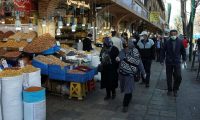Caso Alex Saab: el periodismo hizo su trabajo; es hora de la justicia
Un arresto en la Isla de Sal, un pedazo de tierra volcánica a unos cientos de kilómetros de la costa occidental de África, acaba de asestar un golpe noble a la viabilidad del régimen de Nicolás Maduro en Venezuela, a la vez que puso un punto —quién sabe si final— a una cruzada periodística que cumple cinco años.
El empresario colombiano Alex Saab Morán fue detenido el 12 de junio al desembarcar en el aeropuerto internacional Amílcar Cabral de esa isla, una de las que conforman el archipiélago de Cabo Verde. Saab había despegado horas antes en un avión privado de Caracas, presumiblemente con destino final en Teherán y con el aparente propósito de evadir las sanciones internacionales impuestas al régimen bolivariano por Estados Unidos, Europa y algunas naciones de América Latina.… Seguir leyendo »













